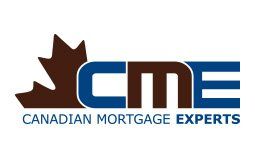the right broker for you.
Contact Us
We will get back to you as soon as possible
Please try again later
Contact Us
We will get back to you as soon as possible
Please try again later
The Stress Test & A Slowing Housing Market | The Latest in Mortgage News
There’s been no shortage of new data pointing to slower home sales and tempered price growth across the country.
Most of the blame has been directed at OSFI’s new stress test , which preceded the slowdown when it came into effect on January 1.
Here’s a sampling of recent reports on the state of Canada’s real estate market:
Home Sales Reach 5-Year Low
Home sales continued their slump in May, with sales in most markets down slightly from April but down by 16.2 percent from May 2017 to a five-year low, the Canadian Real Estate Association reported today.
Declines were led by markets such as the Okanagan Region, Chilliwack and the Fraser Valley, Durham Region in the Greater Toronto Area and Quebec City.
The average home price was also down by 6.4% from last May.
“This year’s new stress test became even more restrictive in May, since the interest rate used to qualify mortgage applications rose early in the month,” said CREA’s Chief Economist, Gregory Klump. “Movements in the stress test interest rate are beyond the control of policy-makers. Further increases in the rate could weigh on home sales activity at a time when Canadian economic growth is facing headwinds from U.S. trade policy frictions.”
Mortgage Borrowing Falls to 4-Year Low
StatsCan just came out with first-quarter data showing that mortgage borrowing fell to its lowest level since 2014.
Over the first three months of 2018, mortgage borrowing fell $2 billion to $13.7 billion, mirroring the 17 percent drop in residential sales activity in Q1.
“The steeper drop to start 2018 suggests we may finally be at a turning point, as the one-two punch of stricter mortgage rules and higher interest rates slow household borrowing while income continues to climb,” BMO economic analyst Priscilla Thiagamoorthy wrote in a research note.
Household credit also dropped in the quarter, with the country’s debt-to-disposable income ratio falling to 168 percent. That’s down from 169.7 percent in the fourth quarter and the record high of 170 percent in Q3 last year.
Borrowing by Millennials Sees Major Pullback
While home sales are down across the country, there’s been a disproportionate drop-off in mortgage originations by millennials, according to data from TransUnion.
The credit bureau reported that originations among this age group are down 19.5 percent from Q4 2017 to Q1 2018. That compares against an 8.8 percent decline in originations among all age groups.
This follows a new poll that found a majority of young British Columbians believe they will be unable to find affordable real estate.
The West Insights and Coast Capital Savings survey found 60 percent of residents between the ages of 18 and 29 are “seriously considering” moving to a market where prices are more affordable.
While B.C. residents aged 30-plus are less likely to move (33 percent), they do sympathize with the current affordability issue facing younger residents, with 89 percent saying they believe it is virtually impossible for young people to purchase a house in the province.
Toronto & Vancouver Drop in Global Price Growth Ranking
Toronto and Vancouver have slipped in a global survey of the world’s most expensive housing markets.
According to Knight Frank’s quarterly price growth survey, Toronto fell to 18th place (down from 11th), while Vancouver is now ranked 31st (down from 22nd place).
Seoul, South Korea, holds the top spot for international price growth, where prices are up 25 percent from a year earlier.
Canada as a whole slipped in ranking from 10th to 15th spot, with price growth at 6.6 percent (down from 8.9 per cent last quarter).
Recreational Housing Expected to Boom
The one segment of the market that shows healthy signs of growth heading into summer 2018 is the recreational property market, according to the Recreational Properties Survey from Royal LePage.
On average, prices for recreational properties are forecast rise 5.8 percent to $467,764, with higher growth forecast in Ontario and Alberta, at 10.5 percent and 8.9 percent year-over-year to $535,885 and $770,100, respectively.
“While home values and sales activity in Canada’s largest urban markets have softened, demand for recreational properties remains robust in most regions,” Royal LePage CEO and President Phil Soper said in a release. “The search for that perfect summer getaway continues unabated.”
Meanwhile, British Columbia’s new speculation tax is expected to have a cooling effect on recreational properties there, with prices predicted to decline.
This article was written by Steve Huebl and was originally published on Canadian Mortgage Trends on June 15th 2018, however as it contained great information, we decided to share it on our blog as well. If you have any mortgage questions, any of our Canadian Mortgage Experts would love to connect with you, contact us anytime!


QUICK LINKS
HEAD OFFICE

Copyright © 2023 DLC Canadian Mortgage Experts. All Rights Reserved | Privacy & Content Policy

